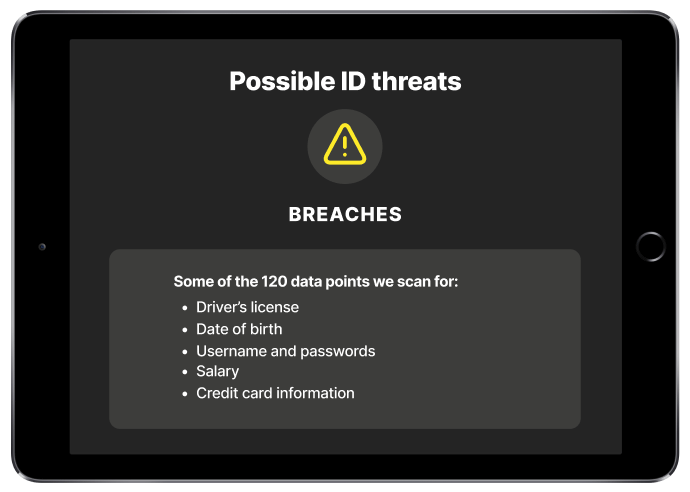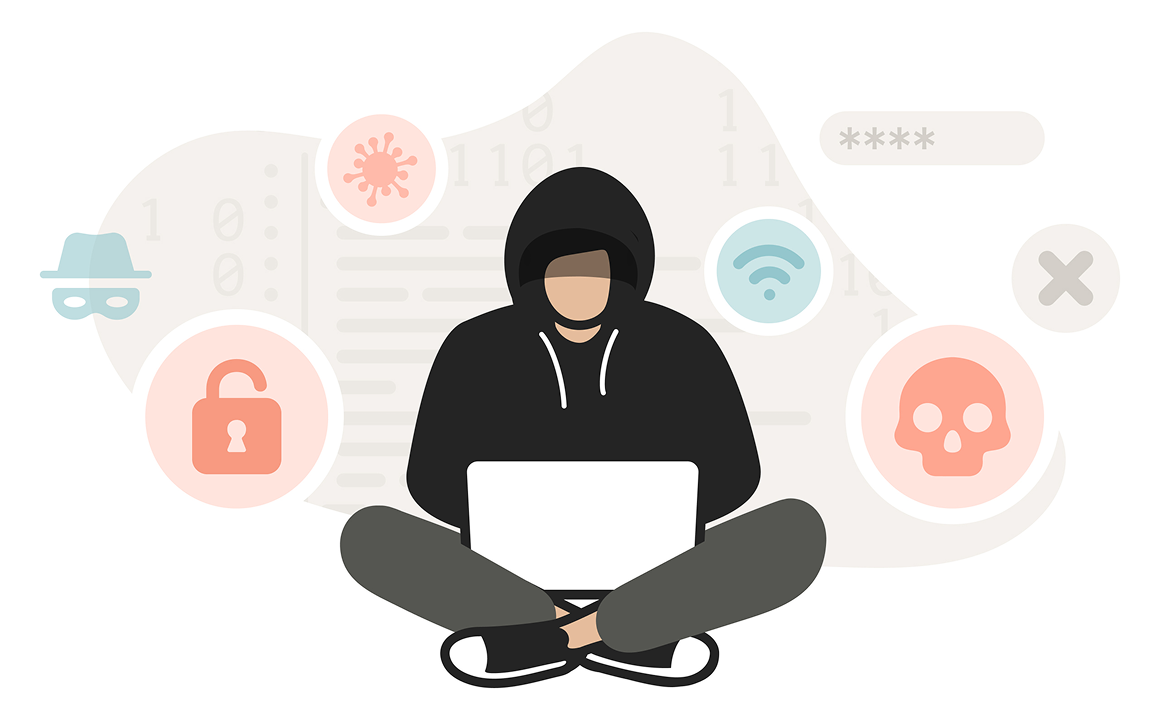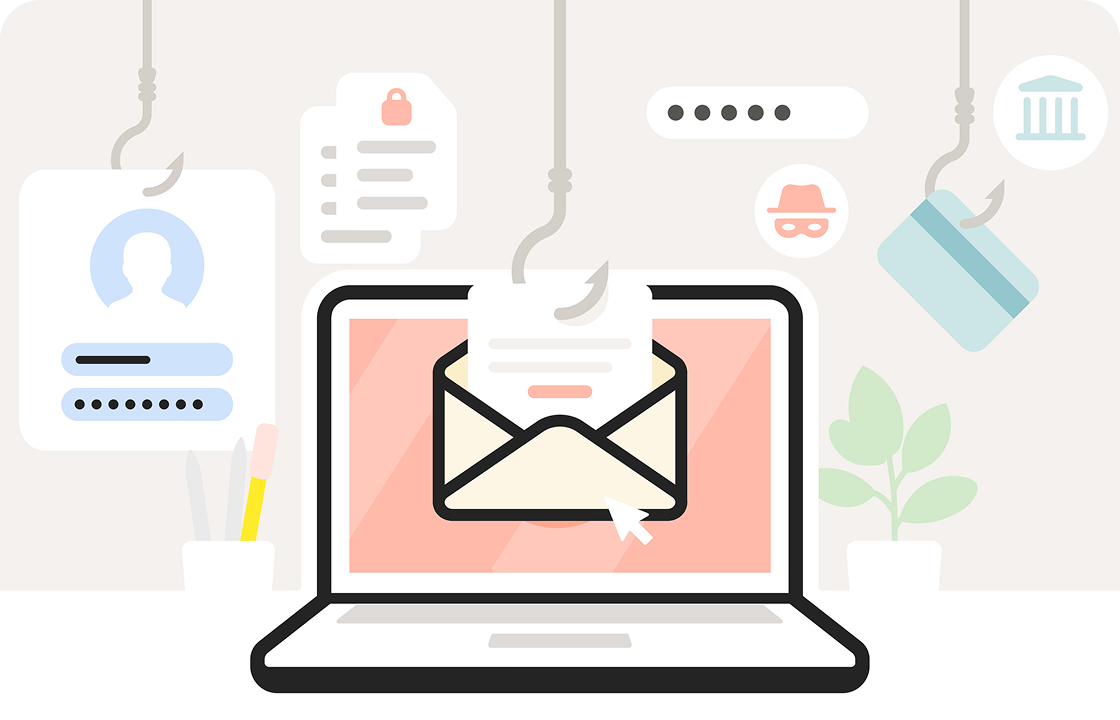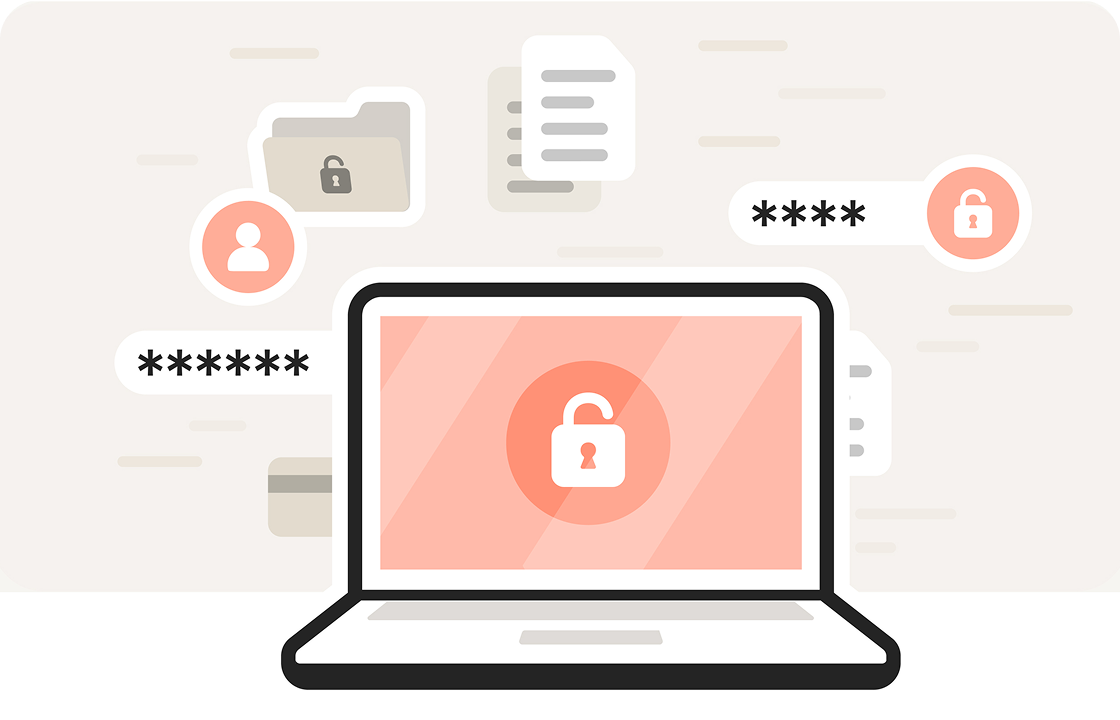Discover if your email address, passwords, or sensitive personal data have been hacked, compromised in a data breach, or leaked on the dark web.
Run a free scan now to see if your data is exposed.
We use the information you provide in accordance with our Global Privacy Statement.

What to do if your email is compromised
Data breaches can leave your sensitive information in the wrong hands, with leaked passwords, financial details, or personal data ending up on the dark web for cybercriminals to exploit. Follow these steps to help secure your identity:
Step 1
Get identity theft protection
LifeLock Identity Advisor offers dark web monitoring, alerts for potential signs of identity theft, and recovery support from a U.S.-based personal restoration specialist.
Step 2
Scan your devices for malware
Use antivirus software to find and remove viruses or other malware lurking on your devices, helping protect your personal data from hackers and cybercriminals.
Step 3
Update your account security
Create unique, strong passwords for all of your accounts, and set up multi-factor authentication to help protect against hacking attempts in the future.
Get alerts of potential data leak threats
LifeLock Identity Advisor scans deeper than easily accessible websites. It looks for your personal information in the dark web and other hard-to-reach corners of the internet. We’ll notify you if we find that your data is exposed so you can upgrade your cyber security and protect against fraud.

Why is your email valuable to hackers?
Your email account probably contains a wealth of hidden personal information, including addresses, phone numbers, financial information, and even your Social Security number. Hackers can use this data to commit fraud or identity theft, leak or sell it on the dark web, or create convincing scams targeting you or your contacts.

How do email accounts get hacked or compromised?
Your email could be compromised in a data breach along with many other people's. But you could also be targeted in an individual attack: hackers and scammers may try to use phishing techniques to trick you into revealing sensitive information. Other attack vectors include harmful malware, spyware to capture your login credentials, or brute force methods to crack your password.

What are the main signs your data has been exposed?
Signs that your email has been hacked or your personal data exposed include being locked out of accounts, getting random alerts of login attempts or account activity, suddenly receiving more spam texts or emails, and noticing changes to your settings. If you spot any of these signs, run a scan for your personal information online and take steps to protect yourself.
Compromised passwords and hacked emails make you vulnerable to identity theft. Get protection.
60-DAY MONEY BACK GUARANTEE WITH ANNUAL MEMBERSHIP.*
Important information
The credit scores provided are VantageScore 3.0 credit scores based on data from Equifax, Experian, and TransUnion, respectively. Any one bureau VantageScore mentioned is based on Equifax data only. Third parties use many different types of credit scores and are likely to use a different type of credit score to assess your creditworthiness.
The credit scores provided are VantageScore 3.0 credit scores based
Click here for additional important information
Take action to protect your identity now
For just $4.99/month* LifeLock Identity Advisor helps you protect against potential identity theft by alerting you to data breaches and constantly scanning for compromised passwords or leaked personal information. If we find data that may be yours, we’ll notify you so you can take action. And if your info is used in identity theft, our U.S.-based personal restoration specialists will be on hand to help you recover.
FAQs
Helpful Links
- How to help prevent identity theft: 19 security tips
- 20 warning signs of identity theft to look out for
- A guide to protecting your personal information
- 11 free ways to remove your information from the internet
- What is a data leak? Risks of data exposure and how to prevent it
- What is the dark web and how does it work?
No one can prevent all cybercrime or prevent all identity theft.
- Price valid for introductory term. After that, your price will renew at the standard price.
- Your subscription begins immediately after your transaction is complete. A payment method is required at sign-up for trials, and you will be charged at the end of your trial, unless canceled first.
Prices are subject to change and may be charged up to 35 days prior to renewal. Cancel here or contact Member Services.
1 LifeLock does not search all personal information at all criminal websites and may not find all breached data.
3 Credit features require successful setup, identity verification, and sufficient credit history by the appropriate credit bureau. Credit monitoring features may take several days to activate after enrollment.
12 Identity Lock cannot prevent all account takeovers, unauthorized account openings, or credit file inquiries. Deactivates if you downgrade or cancel your subscription.
† LifeLock does not monitor all transactions at all businesses.
††† Up to $1 million for coverage for Lawyers and Experts included on all plans. Reimbursement and expense compensation varies according to plan—up to $1 million each for LifeLock Ultimate Plus. Insurance benefits are issued by third parties. See GenDigital.com/legal for policy info.
§ Monitoring not available in all countries and varies based on region.
Copyright © 2025 Gen Digital Inc. All rights reserved. All trademarks, service marks, and tradenames (collectively, the "Marks") are trademarks or registered trademarks of Gen Digital Inc. or its affiliates ("Gen") or other respective owners that have granted Gen the right to use such Marks. For a list of Gen Marks please see GenDigital.com/trademarks.